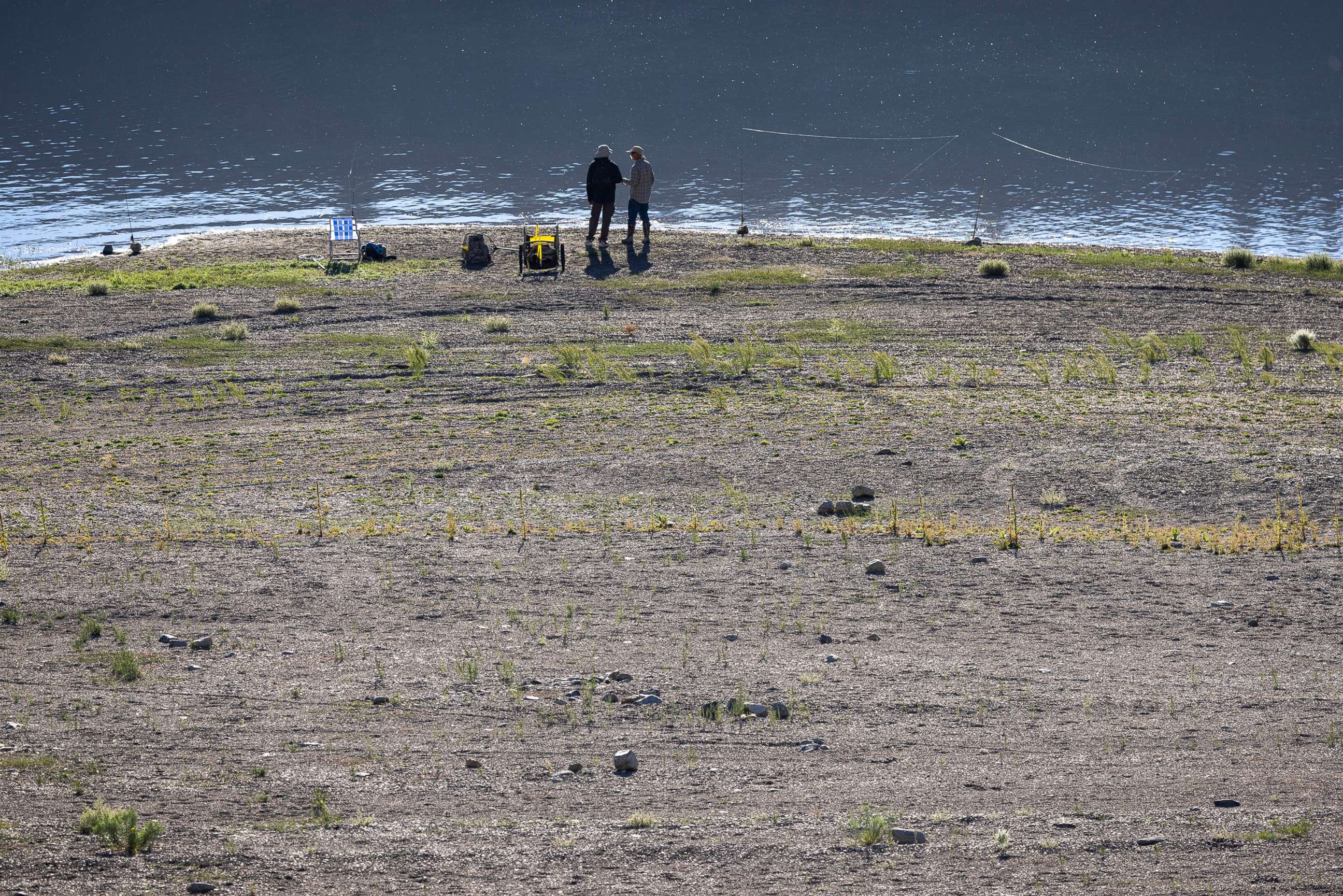New book makes argument for addressing climate migration
Estimates say 1.2 billion people could be displaced globally by 2050.
Recent natural disasters, ranging from flooding to wildfires, have made clear the effects of climate change in the present moment.
As the climate crisis worsens, a massive amount of people may be forced to move from their homes. The international think-tank Institute for Economics & Peace estimates that 1.2 billion people could be displaced globally by 2050.
Gaia Vince, a science journalist and author of the recent book “Nomad Century: How Climate Migration Will Reshape Our World,” spoke with ABC News Prime about the argument she makes in her books that nations have to start planning now for future climate refugees, and that there may be silver linings in that process.
PRIME: Gaia, thank you so much for joining us tonight.
VINCE: Huge pleasure, Mona.
PRIME: Your book lays out that rather disturbing scenario that wide swaths of planet Earth will become completely uninhabitable, but it also focuses on solutions. How can we all feel less helpless right now?
VINCE: Yeah, we need to look differently at the problem. Migration is inevitable now. I wrote “Nomad Century” because nobody is talking about the huge upheaval that is coming as climate change makes large parts of the world unlivable. People will not be able to adapt in certain places, they will have to move.

But migration is not the problem. Migration is the solution. If we manage this, if we plan it, we can actually build thriving cities that save people from some of the worst devastation in some of the poorest parts of the world while also solving demographic issues that we have in the wealthier, northern parts of the world. So it actually could be a win-win if we do it properly and if we actually plan.
But nobody is talking about this issue, it's very frustrating.
PRIME: Apart from being a climate journalist, as a resident of London, you too experienced the effects of climate change firsthand, during this summer's heat waves. Infrastructure began to collapse in one of the wealthiest areas of the world, and now conversations are being had surrounding climate adaptation. Is this a situation where humans don't adjust until the effects of climate change are literally in their backyards?
VINCE: I mean, it's amazing, isn't it? We've been warned for decades by scientists that climate change is happening. It's going to increasingly affect our lives. But it's only when these extreme weather events… we've all had this terrible summer of huge heatwaves, my kids couldn't go to school, it was too hot for them. Our infrastructure is not set up for that.
In the U.S. you've also had extreme weather, Kentucky was completely inundated with water, you had the whole of the West Coast of the U.S. on fire more or less with the terrible forest fires. You've also had heat waves, drought that has killed thousands of cattle… This is going to become, unfortunately, a matter of life and death, even in the richest nations.
PRIME: Gaia, considering the current stigma surrounding asylum seekers, migration on this scale is sort of hard to fathom. Yet you paint a very humane and optimistic image of what this mass migration could look like if properly facilitated. With that, how do we begin to unpack this political hostility and come to terms with climate displacement?
VINCE: Well, migration is inevitable. And in Nomad Century, what I do is I try to make people realize that what we've done is we've allowed the narrative around migrants, around refugees, asylum-seekers to become truly toxic. And migration, it’s not a security issue, it’s actually an economic issue.

It turns out that most countries around the world, their economies could not survive without migrants… Who were going to do the everyday jobs that cities rely on? We all rely on migrants. We're not having enough babies in most nations in the Northern Hemisphere and so as our populations age, we're going to face huge labor shortages, it's a demographic crisis. The only way to solve it is through immigration. Let's make it work. Let's actually plan it.
PRIME: And in your book, you argue that it doesn't have to be as scary as it sounds. It could be a win-win for the Global North, who, as you mentioned, has a demographic crisis. But it is sort of crazy to think about what you propose that cities may one day exist in Antarctica. We have a segment on our show called "It's Not Too Late," focusing on climate solutions. Do you believe it’s not too late to prepare for this?
VINCE: It's absolutely not too late. You know, every degree of temperature rise, every tenth of a degree of temperature rise makes a difference, and we have to fight for that.
This is a serious economic and humanitarian issue. We can solve it. We need to mitigate. We need to reduce our emissions. We need to get to net zero. And then we need to cut below that. We need to withdraw the carbon that we've already emitted from our atmosphere.
We need to change the way human systems work to make them sustainable with natural systems, because natural systems are much harder to change.
PRIME: And you propose some promising solutions. We appreciate you joining us. “Nomad Century: How Climate Migration Will Reshape Our World” is now available wherever books are sold.




